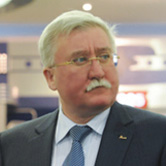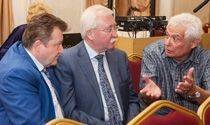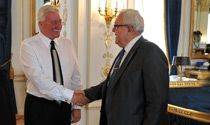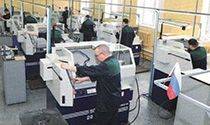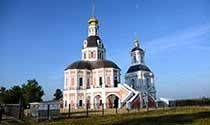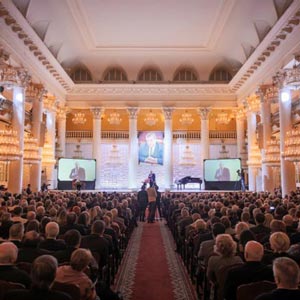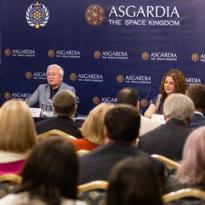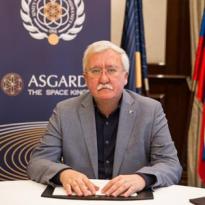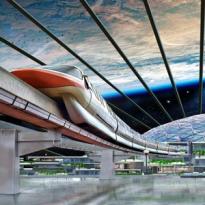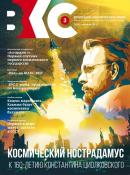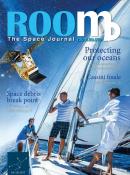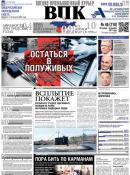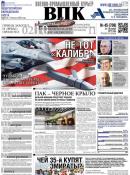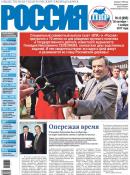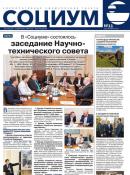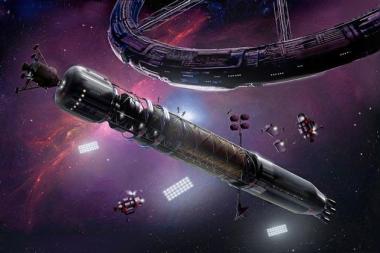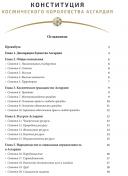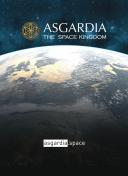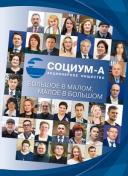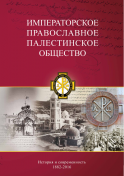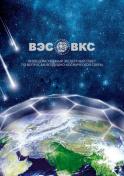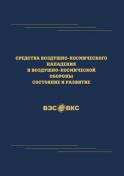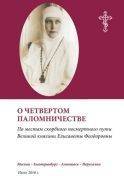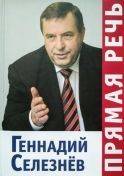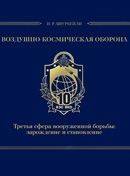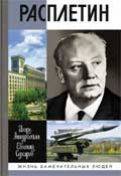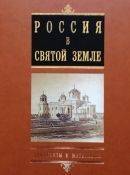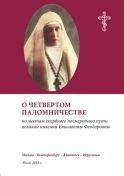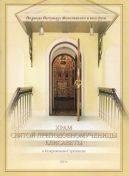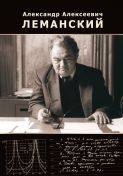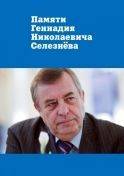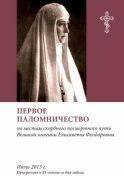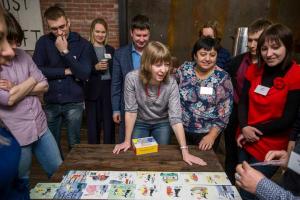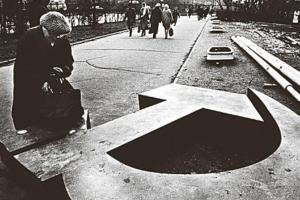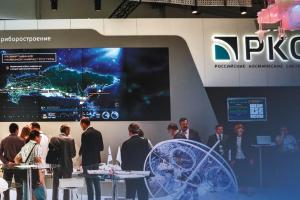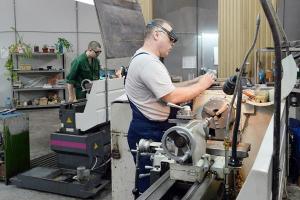Speech by Igor Ashurbeyli at a press conference in Moscow
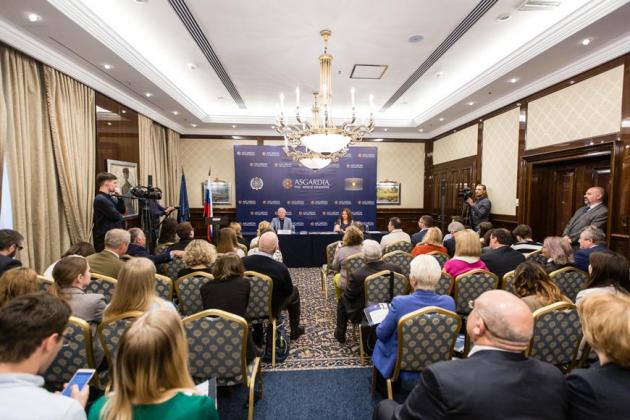
Lena De Winne: Hello, ladies and gentlemen. We are happy to see you here today. Igor Ashurbeyli, Head of Nation. I am Lena De Winne, Deputy Head of Administration, responsible for the public relations of Asgardia.
Igor Ashurbeyli: Hello again to everyone! Thank you for finding the time to come. Hi to everyone who is online.
Today is our third press conference concerning Asgardia, and it’s dedicated to the one-year anniversary of the founding of the only space nation in the history of humanity.
The first press conference took place on 12 October 2016 in Paris, the city of freedom, at the Ritz Hotel. There, we announced the creation of a free Asgardia.
The second was tied to the unified voting day – our national holiday – Unity Day – on 18 June 2017 in Hong Kong, China, where the largest number of Asgardians reside. It also took place at the Ritz Hotel.
I decided to host the third press conference dedicated to the national holiday – the first birthday of Asgardia – in Moscow, Russia.
First, because I’m a Russian citizen and my family and I have lived in Moscow since 1989.
Second, because we in Asgardia do not see Earthly boundaries, only continents. Eurasia is the largest continent, and Russia is the largest country by territory in Eurasia. And perhaps Moscow is meant to be the capital of Asgardians in Eurasia.
Third, Russia is the birthplace of global space science, and this month it celebrates 60 years of the launch into space of the first-ever man-made satellite into space. Asgardia also plans to launch its first satellite in the next month.
There was a possibility that this conference will not take place. The thing is, we didn’t want to continue the seemingly random tradition of hosting our events at the Ritz hotels, and all of their conference rooms were taken, as you see, Gazprom is holding an event here. That is why my team chose the conference hall of RIA Novosti, and we booked it in advance. Soon after, we were asked for the press release, for the list of attendees, about the launch of our satellite and much more. After providing official, exhaustive answers, we were denied the room, without being given a reason. We were denied a written refusal. And that’s when I felt at home.
But if I’m serious, a national event of Asgardia was under the threat of cancellation and this was not a friendly action, so our administration even came up with a protest idea. But then we decided not to get bogged down in the details. So, if there is a RIA Novosti representative here tonight, please let your management know that our press conference has been peaceful and unarmed, they shouldn’t have worried.
Surprisingly, the day we were denied a conference hall at RIA Novosti, a space opened up at the Ritz Hotel with a telling name – Washington. My colleagues tried talking me out of taking it because of obvious political parallels, but Asgardia does not get involved in Earthly politics, and I made the decision for us all to meet here. So, hello again, Ritz, for the third time. This must be fate.
And now I’d like to quickly talk about the main results of Asgardia’s existence and our plans for the near future.
As you know, in the first 40 hours, more than 100,000 people signed up to become citizens of Asgardia, and in the first 20 days their number exceeded 500,000 and continued to snowball.
At that moment, the difficult decision to stall the process was made, which was later called the first level of verification. Bots, multiple profiles, under-age profiles and random “likes” were eliminated. Those who passed this second level of verification received citizen certificates of Asgardia with unique ID numbers, which will serve as the basis of the ID cards and, finally, the passports of Asgardia. The third level of verification took place during the unified voting in June of this year.
This was an important landmark in Asgardia's history. By the majority of 72.5 percent, the Constitution of Asgardia has been accepted, and the flag, anthem, coat of arms and Head of Nation selected.
As of today, Asgardia represents more than 107,000 citizens of 204 Earthly countries, including 175 member-states of the United Nations.
Asgardia currently is in 177th place by population size out of 193 member-states of the United Nations, which is not bad for a country with just one year’s worth of history under the belt.
This is a collective composite of Asgardians: 84 percent are men, 15 percent are women. One percent are those who selected the “other” option. Three out of four Asgardians are under 35 years of age, which makes us happy. I don’t know what you just thought about, but I’m glad that it will be a while before pension expenses will appear as a line item in Asgardia’s budget soon. Twenty-four percent are under 65 years of age, and one percent is over 65.
Therefore, the main affair of today – quite literally – is that Asgardia's parliamentary elections have begun. The Parliament will be based on language, not on countries, because, as I’ve mentioned, we do not see country borders on Earth. Therefore, the new calendar of Asgardia has been confirmed. It is published on our official site and in the booklet that you will receive today, along with our Constitution.
All Asgardians, regardless of the country of residence and its official language, were asked which language would they prefer to communicate in in Asgardia. And the numbers we received were surprising, no one has done this before.
Here are the preliminary quota of the 12 the language-based electoral districts and one additional one chosen by Asgardians. English became the definitive and anticipated leader. Asgardian citizens from many countries who voted for it received the quota of 68 spots in the Parliament.
The second group of leaders is Chinese in all its dialects – 23 spots, Turkish– 16 spots, and Spanish – 15 spots. They are followed – at quite a distance – by Italian – 5 spots, French – 4 spots, Russian – 4 spots, Arabic – 4 spots, Portuguese – 3 spots. What’s interesting, two monolingual countries are at the bottom of the list. Iran – Farsi – with 2 spots, and Japan – Japanese – with 1 spot. I must mention with regret that the Russian language could have been an outsider, had practically all of the Asgardians from the former Soviet Union republics not chosen it as their main language.
I would like to emphasize that all other languages were chosen by less than two percent of Asgardians, thus receiving a collective quota of two spots. Thus, 150 members will be chosen to Asgardia's Parliament. This will happen in mid-March 2018. I would like to reiterate that the election campaigns began today on the new version of the website Asgardia. Space. I am asking all Asgardians, as well as our new citizens, the number of whom grows daily, to participate actively.
We can also add to the results of the first year the registration of NGO Asgardia in Vienna. It will represent Asgardia on planet Earth until Asgardia is recognized as an independent state. We ask you to make charitable contributions to this organization through our website, because the payments to all government officials will be conducted only through these payments beginning in 2018. The number of government officials will not be more than 1 percent of the total number of the citizens of Asgardia. The preliminary budget for 2018 will be presented for discussion.
Asgardia AG, an investment company, has also been registered in Vienna. It is a country of space startups with the initial capital of 1,000,000 euros, which will grow freely due to the sale of stocks to Asgardia’s citizens and investors.
The good news is also that Asgardia's monetary unit, the Solar, or Sol, for short, has been registered just days ago, on 5 October 2017, by the European Union Intellectual Property Office in 12 classes. This is a serious victory.
And, in conclusion, I’d like to talk about our plans for the near future.
First, it is the launch of the Asgardia-1 satellite in November of this year, just as we promised a year ago to various skeptics.
Second, it is the creation of Asgardia’s Post and the first day of issue of the stamp and envelope before the end of the current year.
Third, it is the government elections of Asgardia in May 2018, in the three months following the parliamentary elections.
Fourth, it is the elections for the Court, the Prosecutor General’s Office, the National Audit Office and the Supreme Space Council in May 2018.
Fifth -- the inauguration of the Head of Nation in June 2018.
On this note, let me conclude my presentation.
We say – we are not the best, we are the future.
Our motto – one unity, one humanity.
Hugs to all of you and every one of you.
.jpg)
Lena De Winne: Thank you, ladies and gentlemen. Igor Ashurbeyli, the head of Asgardia, the first space nation in the history of humanity. Now you have an opportunity to ask questions, and when you stand up, please introduce yourself and state your publication.
Pavel Anokhin, Russia newspaper: My question is about the elections to the Parliament of Asgardia. As I understand it, you mentioned that it will based on the language principle. Won’t Anglo-Saxons dominate? Maybe there’s some sense to having parliamentary members stemming from multiple political and civilizational varieties? This is what my question is about.
Igor Ashurbeyli: That would mean that we are forcing some sort of a template upon Asgardians. We have given them the right for self-determination, this is what they have voted for, and they have chosen English. If a Chinese person has chosen English, how can we say that, given some civilizational norms, we have to set some other rules. Our rules are very simple. We have
107,000 citizens, each selected a language they would like to use, and it turned out that so many people want to speak English that they received the first place in Parliament, 68 votes. This does not mean that all of these people live in the UK or in Canada, or the United States. These are people from all over the world; for example, I don’t want to offend any Finnish people, but not a single Finn chose Finnish, they all chose English, unanimously. And so on. The total number of countries that chose English is more than 100. That’s why we won’t impose anything. The languages will change, the composition of the Parliament will change, but for right now, this is how it is.
Lena De Winne: Thank you, next question. Introduce yourself, please.
Alyona Morgunovskaya, CBS Media/Frenzy Journal: My question also concerns languages. It’s no secret that Asgardia was born in Russia in a way, at least the idea of it, even though right now it’s the only nation for representatives of planet Earth that has transcended Russian borders. Will this somehow result in attribution of a special status to the Russian language, perhaps as a second national language? Overall, how will it affect the fate of the Russian language outside of our planet? Thank you!
Igor Ashurbeyli: Well, it was Asgardians who chose the 12 languages, not me, not anyone else. It just so happened that 12 languages were chosen, the rest, as I’ve mentioned, constituted less than two percent. Therefore, the Russian language – if we look at Russia only – I will tell you in secret, it ranked 11th, sadly. And it was moved up just because almost all of the Asgardians from the former republics of the Soviet Union added their voices to Russian, that is why it moved up to, I believe, sixth or seventh place. I think its fate will depend on Russia’s fate, if our influence in the world grows, the number of people who speak Russian increases, but considering that a number of people are switching from the Cyrillic to Latin alphabet and so on, this process, generally speaking, evokes concerns.
Lena De Winne: Thank you! Next question, please!
Pavel Anokhin, Russia newspaper: Naturally, my acquaintances are talking about Asgardia, and they are asking, why doesn’t Asgardia institute some sort of a prize, for cinematographers, for journalists? Maybe this idea already exists? It would simultaneously be a PR campaign for Asgardia in the Russian world.
Igor Ashurbeyli: Well, everything must go according to the Constitution, which we already have. All the prizes, that’s up to the government. Once the government is set up within the three-month period by the Parliament – by May, that is – they can think about prizes. Our goal currently is on a different level: the creation of the nationhood, the recognition of Asgardia by other countries, the acceptance to the United Nations. The question of prizes is up to the ministries and the government, which will be created later. It is not within our competency.
Lena De Winne: Go ahead, please!
Natalia (name of publication inaudible): My name is Natalia. A question! You mentioned that you will have your own currency, your own monetary unit, and on your official website, Asgardia.space, it even mentions the creation of the National Bank of Asgardia. Tell us please, how will the monetary exchange works and how will this bank be structured? Thank you!
.jpg)
Igor Ashurbeyli: Wouldn't you like to know all of our secrets! As I’ve said, on 5 October, the European Union Intellectual Property Office confirmed our currency, it’s called the Solar. It is of course a cryptocurrency based on block-chain technology. Therefore, the Central Bank will store the encryption codes of its depositors. The chairperson of the Central Bank will tell you about once he/she is appointed.
Lena De Winne: Go ahead, please!
(Inaudible): Whom do you see as the Prime Minister in Asgardia?
Igor Ashurbeyli: I have no idea. The Parliament should suggest a candidacy. We are not building a fake nation, I would like for everyone to understand this. This is not a computer game; this is not something that gets invented. We are strictly adhering to the international regulations for creating nations, which is why we had the first stage of the verification of personal data. We used the services of international auditing companies that followed our elections, rejected some digital signatures and finally confirmed the Constitution. It has been in effect only since 9 September. And now, in accordance with the Constitution, we have six months for the parliamentary elections based on the language principle. Then we have three months for the elections for other executive bodies and the court. Only then we can move on to the Central Bank. We are trying to do this quickly, but not ahead of the law, as that would impede our acceptance to the United Nations.
Lena De Winne: Please!
Maria Ivanova: Hello, I have the following question. Is it true that in the near future, Asgardians will be based in outer space, and, by your determination, when will this be possible? Thank you!
Igor Ashurbeyli: I will answer this way: during my lifetime, I would like to take a trip to an Asgardian settlement on the Moon, and, of course, on the first space arc. I’m 53, so let’s do the math. It will not happen tomorrow. We began with the first satellite, and next year, I think, we will launch more. A four-level orbital cluster of satellites should be completed in 5-7 years, and then definitely the moon. We are not looking beyond that. We can let Elon Musk to do that, you can go to Mars with him, whoever makes it, good for you.
Lena De Winne: Please!
(Inaudible): Can you please let us know the goals that follow the launch of the first satellite? What will be decided, and what are the plans?
Igor Ashurbeyli: I am a superstitious person, which is why I’m not even telling you the date of the satellite launch, sorry. Because it depends on many factors, I would like to discuss the satellite in detail after it is launched successfully, God willing. The next press conference will be in the same city where the satellite will be launched – in Washington, DC – and by the way we are right now in the Washington room – we can make some historical parallels here as well.
Well, first of all, why is this satellite unique? Definitely not because of its size or its tactical or scientific characteristics. It is unique because in the first time of the history of humanity, the satellite’s memory, which comprises half a terabyte, is available not only for scientists, the military and special forces, as it has always been before this on all satellites that ever went to space, but for this first time all Asgardians were given an opportunity to place any personal information, 300 KB each. So, this is the first satellite that is available to any citizen of Asgardia, which is the philosophy of Asgardia: we want to make space available for everyone. And the second, technical thing, of course, is that we want to check the effects of the cosmic radiation and emissions on the digital data security because, this, again, relates back to the question of cryptocurrency, keys and so on. By the way, I forgot to say the most important thing! This satellite is our territory. To become a nation, we must have a territory. We don’t feel like conquering anything on Earth, and there isn’t a single international law that dictates what size a nation’s territory must be – simply that it must have one. So, our territory will be in outer space and it will store the digital data of all of the nation’s citizens.
Lena De Winne: Please!
Alyona Morgunovskaya, CBS Media/Frenzy Journal: Two more questions. First, you just mentioned God, and as a believer, I often talk about it with acquaintances, and some have mixed reactions to this. I would like to hear your comments about the idea of mankind’s entry into space from this point of view, and how it correlates with our Christian religion. And the second question is about politics, are you planning any changes of the conditions of applying for Asgardian citizenship, any limitations, or on the contrary, are you aiming for future growth and don’t plan to change the conditions of applying? Thank you.
Igor Ashurbeyli: I will begin with the second question; no limitations are planned. Actually, I know the number at which we will stop, but I will not tell it to you. But it’s rather large and so in the near future, there won’t be any limitations for applying for Asgardian citizenship. Regarding the second question, I will answer with a short parable. A man asks God: “God Almighty, when I reach the end of the universe, what will I do?” And God replies: “My son, I created you in my image as the Creator. When you reach the end of the universe, you will begin creating your own universe.”
Lena De Winne: Please!
(Inaudible): Is there an aggregate composite of an Asgardian? What will Asgardians do, other than going about their Earthly business? Thank you.

Igor Ashurbeyli: I have already discussed the gender and age distribution of Asgardians. As far as their Earthly occupation, I have no idea what the 107,000 of our citizens and 360,000 of our followers are doing. This is simply impossible, to talk about people residing in more than 200 countries – I will not speculate. But I do know definitively that each of them has a computer, otherwise they wouldn’t have become citizens of Asgardia, and because it’s an entirely digital country. When my acquaintances come to me and say, “Listen, where do I go to apply? Can you say something on my behalf?” I tell them “I can’t, go to the website and register, there is no other way.”
Lena De Winne: The woman in the last row has been waiting awhile.
Yana, Free Press: During Asgardia's existence, you've held three major press conferences, in Moscow, Paris and Hong Kong. How was the choice of these three cities determined, and where do you plan to hold more press conferences?
Igor Ashurbeyli: I’ve already answered this question actually; I mentioned that Paris is the city of freedom, and that is why it was chosen, because Asgardia is a free space nation, hence Paris. I talked about Hong Kong too, because the biggest group by number of Asgardians –not by language – are Chinese. And because the English language holds first place, that means, some of the Chinese chose English. The third press conference is in Moscow for three reasons, I won’t repeat them. The fourth is slated to take place in Washington after, I hope, a successful launch of Asgardia’s satellite. After that we have not yet planned.
Mikhail Kaplin, Lenta.ru: I have two questions. First, your nation is described as a kingdom, but at the same time, as I understand it, there is the rule of the people. Is it a parliamentary republic, a kingdom or a constitutional monarchy? The second question is this. What makes you so sure that large international organizations such as the UN will, for example, recognize your nation?
Igor Ashurbeyli: Who says that the UN is a large organization with authority? It is just some sort of legacy, some agreements as a result of WWII. I joke, of course, it’s just that the recognition of Asgardia by four or five countries will automatically result in the UN having to accept us among its members, and it will be just a question of member fees and so on. It’s a matter of formal procedure, and we will get there sooner or later. As far as the kingdom is concerned, we wanted something outrageous, some romance, some magic, a space kingdom. Right? It says in the constitution that we are a Constitutional Monarchy, but you’ve probably noticed that my position as the Head of Nation is limited to five years by the Constitution, and that’s it, so, these are the five years for Asgardians to figure out what it is they want. The current Constitution is not set in stone; if after five years Asgardians vote for a space dictatorship, they will get a space dictatorship and they will have a monarchy. I have no idea what will happen in five years, but the entity is growing fast, and 75% of Asgardians are young, creative people. What they will come up with – I do not know.
Lena De Winne: Any other questions please?
Darya, Everything About Space magazine: Can you please characterize Asgardians? A collective composite of sorts, what do they do other than their Earthly business?
Igor Ashurbeyli: I think the questions are being repeated. I can say one thing about Asgardian women: they are the happiest women, because in Russia there are 10 million more women than men, and in Asgardia, there are 84% of men and 15% of women.
Lena De Winne: Any other questions? Please!
Sergei: A year ago you announced the creation of Asgardia. What have you accomplished during this year, and what difficulties have you faced?
Igor Ashurbeyli: I think I just spoke about our accomplishments during my speech. We haven’t accomplished anything other than what I’ve already mentioned.
Lena De Winne: And what’s the biggest difficulty?
Igor Ashurbeyli: Since I’m a mischievous programmer by profession, my biggest difficulty is with our programmers. I'm constantly unhappy with what they are doing, although they do a lot. I have not seen other difficulties yet.
.jpg)
Igor Ashurbeyli: I always talk about the colonization of the Moon. And even our currency – the Solar – will be tied to the mass of the Moon or to some other characteristics of the Moon, its procurement. That is why we speak of three localities of Asgardia: the Earthly locality that will house the launch site, satellite production facilities, a programming center, a mission control center. We say that the second segment, it’s the orbital constellation of Asgardia’s satellites, and the third segment is the Moon settlement.
Not any more than that. During my lifetime, I do not look further than the Moon, because as of today, the human physiology does not allow one to consistently be at further distances and this problem has not been studied from the medical point of view, and I would prefer not to engage in adventurism. We’ll make it to the Moon somehow.
Lena De Winne: Thank you! Any other questions? Please!
Evgeniya: How does the selection of potential citizens of Asgardia work? What are the main criteria for acquiring citizenship? Thank you!
Igor Ashurbeyli: There is no selection. But we look at it from the viewpoint of international law; if someone is underage, there should be permission from the parents; that it’s not a bot or a robot; so we do check personal data. That’s it, if it’s a human, and of age, and has provided the information that is sufficient for the third level of verification, then they automatically become an Asgardian. During this they don’t enter into human contact with anyone, this is all done online. Another issue is that during the fourth level of verification – receiving ID cards, which will be residency cards – this will be done by our ambassadors or consuls in various territories, but this will take place after the government elections and after the creation of the Ministry of Foreign Affairs, where the physical presence of a person will be needed to receive an ID card with their photo and additional information. And the fifth level of verification – receiving the passport – this will be after we’ve become part of the United Nations.
Lena De Winne: Are there any other questions? Go ahead, Ivan!
Ivan: I have a question about creating new technologies. Would you like to discuss this topic with Elon Musk, if you had an opportunity, or would you prefer to organize something first and blame him given that right now there is a lot of criticism that he’s just an ordinary yo-yo who is really a representative of one of the space agencies.
Igor Ashurbeyli: You just answered your own question. And note that you said this, not me.
Ivan: Good. And regarding a discussion, what kind of questions would you ask.
Igor Ashurbeyli: You know, without excessive arrogance, as a Head of Nation, I would be pleased to ask Putin, Trump some questions, to discuss with them, whereas talking to some even leading head of some corporation, I'd let my Minister of science and technology do that. Although I don’t think he/she would be interested in that last idea, that you should travel by rocket from one point to another on Earth. This is the last idea voiced by Musk in Adelaide. I don’t know what his next idea will be. `
Lena De Winne: Alexander, please! Introduce yourself.
.jpg)
Alexander Milkus: Igor Raufovich, can we talk in more detail about the satellite? Who assembled it? What will be the launching vehicle?
Igor Ashurbeyli: I paused for some reason… I paused because first of all, as I said, I am superstitious, and the satellite hasn’t been launched yet. Second, I am trying to leverage the situation politically. This satellite was manufactured in the US, it will be on an American rocket launcher, launched from an American launch site to the US portion of the International Space Station. But here is what’s troublesome. No one in Russia was interested in this, we tried and fought for it all year, but RosKosmos wasn’t interested.
The satellite will be delivered on the Cygnus vehicle to the International Space Station. It will dock on the ISS and stay docked for some time, two months I think. The ISS is working with NASA, we don’t know and don’t want to know. Then the Cygnus vehicle will detach, fly up about 100 km more and at 500 km it will deploy Asgardia-1.
Lena De Winne: More questions? Please!
Pavel Afonin, Media Times: I have a question. Where are the headquarters of Asgardia and its technological base? How many people work there?
Igor Ashurbeyli: Our headquarters are in Vienna; that is where the main embassy and the investment company Asgardia are. It is obvious why Vienna was chosen: it is in a neutral country, not a member of NATO, and the UN Committee on Space is also there, as well as the majority of space government officials. As far as our numbers go, we have about 80 groups of volunteers globally, and the Asgardia team today consists of active employees in two parts, one is the technical part – our programmers, and the other is the administrative part, which is also all over the world. The programmers are mostly in Russian, and our administrative employees are in the UK, Latin America, Austria, Russia… but I’ll say it again, until the formation of the Parliament and the government, it is not correct to speak about the numbers. The only thing I can tell you is that our government officials will constitute no more than 1% of the population of Asgardia, whatever it may be. And the Parliament will have 150 members. It seems that the number of government officials will have the same number of people – with 107,000 Asgardians we will have approximately 1,000 government officials who work in all branches of government at all levels. So if we speak about the number of people, then always consider it as part of the 1% of the number that you see on our site, which is changing every minute, but currently is at around 107,000.
Lena De Winne: One final question?
Igor Ashurbeyli: Yes we should wrap up.
Pavel Anokhin, Russia newspaper: You just mentioned that Asgardian women are the happiest. What do you think about Asgardians getting married?
Igor Ashurbeyli: We’ll have a dating site…we’ll do it soon.
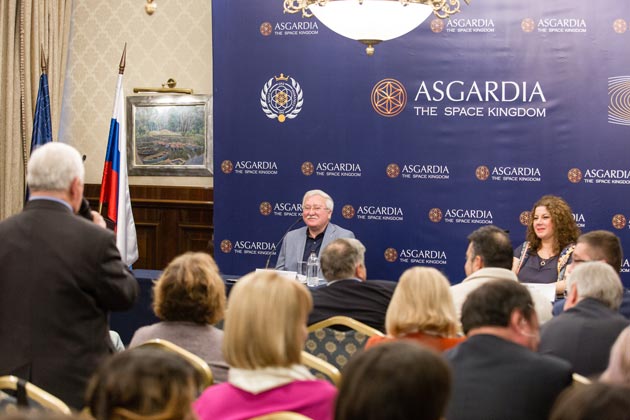
Pavel Anokhin: Will the marriage take place in an Earthly registration office, or in space somewhere? Do you want to fast-track some Asgardian wedding?
Igor Ashurbeyli: You know, we already have the first child that was born to an Asgardian couple. As soon as the Ministry of Internal Affairs is formed, we’ll have registration. Meaning, we’ll have all the normal registration procedures, just as in any nation, only they will be digital and on the satellite, and we’ll have not only marriage certificates, but certificates of birth, death, divorce, inheritance and so on. These are very real procedures, procedures of business registration, they will be very fast, based on block-chain technology, but it will happen a bit later.
Lena De Winne: If I may, I’d like to add that there are already people who have written to me and asked to be registered first. They are waiting to register their marriage in Asgardia, and that is why they are not registering their marriage on Earth. They want to be first. We already have these requests.
Igor Ashurbeyli: All right, thank you. Let’s have the last question and that’s it.
(Inaudible): I have this question. Will Asgardia have security agencies and an army? Because in either case, it will be amongst other nations, meaning, its members will be on Earth for some time, and you’ll have to protect for their rights, their sovereignty and so on?
Igor Ashurbeyli: The answer is no. Asgardia will not have any security agencies on Earth, but because one of Asgardia’s goal in the scientific/technological area is protecting planet Earth from outer space threats, we will have, in accordance with the Constitution, a Space-Air Fleet, but it will be based on the orbit, and its job will be not protecting Asgardians on Earth, but protection of all humanity and planet Earth from asteroids, comets and so on. That is why the Space-Air Fleet will be created for protecting planet Earth from space threats. That’s it, thank you for coming!
Lena De Winne: You can have a private interview with Dr. Ashurbeyli, please ask Yuliya, my colleague, about it. Please use the hashtag Asgardia in your publications in our social media. We already have 140,000 followers on Facebook, and more than 200,000 on all social media taken together. Thank you for coming to celebrate this day with us.
Igor Ashurbeyli: You can direct all other questions to Mikhail [Spokoyny], he is the head of administration.
Выступление Игоря Ашурбейли на пресс-конференции в Москве
(материал на русском языке)
